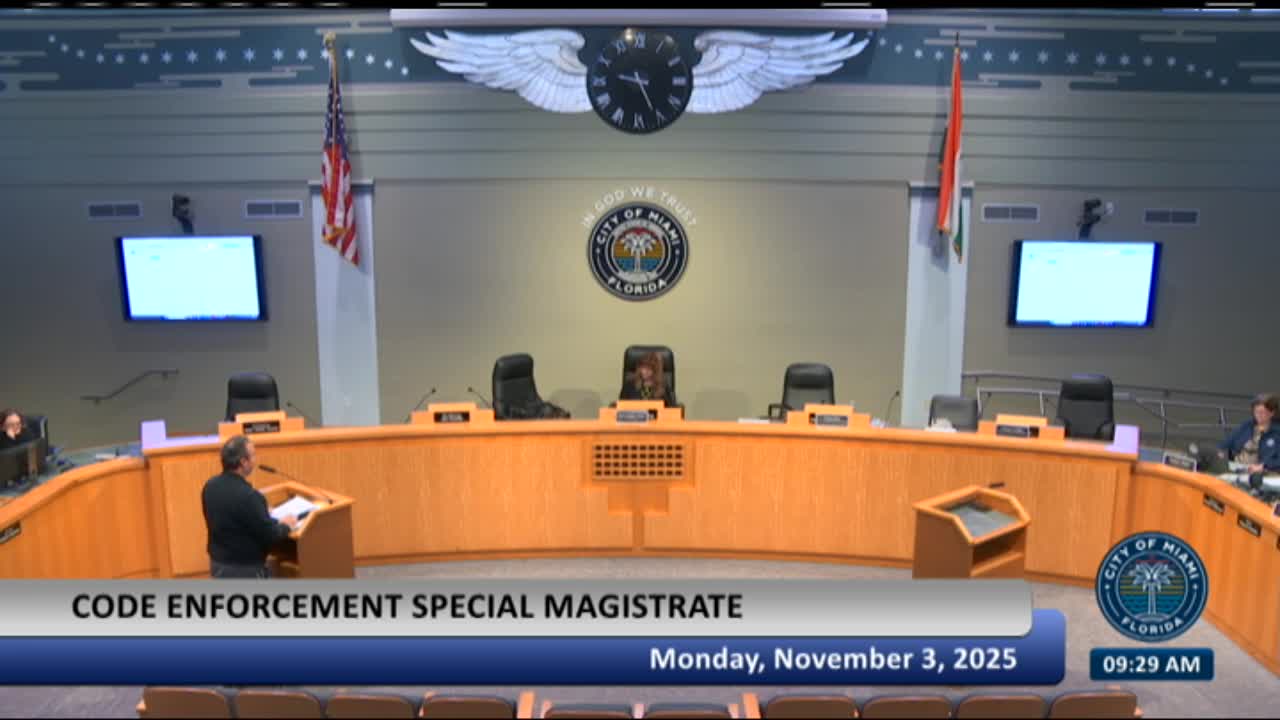Invalid or missing powers of attorney delay several cases at Miami code-enforcement hearing
Get AI-powered insights, summaries, and transcripts
Subscribe
Summary
Multiple docket calls were continued or not heard after clerks found attendees lacked valid powers of attorney; clerks instructed parties to file corrected POAs to obtain reset hearing dates.
Clerks at the Miami code-enforcement hearing repeatedly checked powers of attorney and declined to hear several cases after determining the POA forms were invalid, undated, missing required signatures, or issued only to a previous owner.
At 00:20:08 and again in later docket calls, clerks examined the forms and told representatives they must present a valid, dated power of attorney that the city has on file before the case can be heard. In one instance an attendee presented a POA that appeared to be valid but was for an earlier date only (example given as a May 5 date) and the clerk ruled it unacceptable for the hearing. On other calls, clerks said a signature was missing or the POA was the registered agent’s form rather than a power of attorney for the individual owner.
The practical effect: Several cases were reset rather than decided on the merits because parties could not legally represent the owner at the hearing. The officer paused on multiple docket items and instructed parties to consult with clerks to obtain a reset date once a corrected POA was filed.
Why it matters: Valid representative documentation is a prerequisite for administrative hearings. Without it, cases are delayed, which postpones both enforcement and potential remediation. The hearing officer stayed briefly during the docket to allow a late arrival, but ultimately adjourned when POA issues remained unresolved.
Provenance: Multiple transcript excerpts showing clerks’ review and rulings on POA validity appear beginning at 00:20:08 and recur through 00:30:00.
